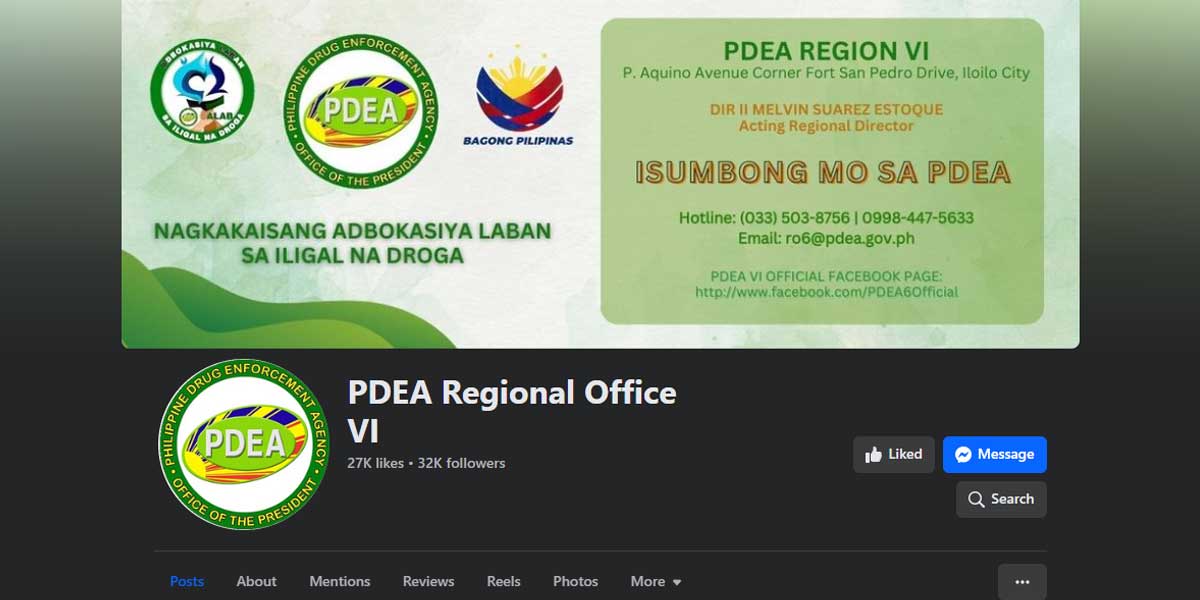THE Police Regional Office 6 (PRO-6) confirmed that some politicians both incumbent and those running for office alike are employing private armed groups (PAGs) and New Peoples Army (NPA) in their bid for public office.
But Chief Superintendent John Bulalacao, Western Visayas police chief, declined to go into details as they are still validating the reports.
After several quizzing, though, Bulalacao pointed that some of these politicians are incumbents.
In fact, according to reports, there is one congressman who has been reported in close coordination with the NPAs. He is campaigning for a mayoralty position but I dont want to reveal his name yet because we are validating this report, he said.
Bulalacao said they have a list of mayors who are reported to be engaging the NPAs help in their campaign.
But he did not elaborate further. Bulalacao also withheld releasing the total number of politicians on their list and the areas where they are seeking elective post.
Nonetheless, we are still warning them, in case they decided to enlist the services of the NPAs and PAGs in pursuing their political ends. But we are here and we will make sure that these will be addressed properly, he said.
While police are doing their part, Bulalacao is also confident that voters are circumspect enough to junk politicians who employ goons, guns, and gold in their political activities.
PERMIT TO CAMPAIGN
In whatever capacity the politicians would use the NPAs, Bulalacao said it is not justified.
The fact that they are cooperating and coordinating with the NPAs is wrong because they are giving strength to the local terrorists, he said.
Based on the validated report of the PNP, the NPAs could ask for P500,000 from a local candidate in exchange for a permit to campaign (PTC).
The PTC fees will supposedly give candidates access to perceived rebel strongholds.
The NPA allegedly sent letters to some candidates.
The PTC fees usually vary in areas and on the elective post a candidate is running.
But aside from PTC fees, the rebel groups are also asking for permit to win (PTW) fees from candidates.
By paying the PTW fee, the NPAs allegedly ensure the victory of a candidate.
Thats why we appeal to candidates to inform us or any law enforcement agonies in case they are being demanded. If they pay, they are making the NPAs strong in fighting the government because they are giving the rebels the funds to procure firearms and other logistics, Bulalacao said.
Meanwhile, Colonel Alberto Desoyo, commander of the Philippine Armys 301st Infantry Brigade, said that they have already received reports of PTC solicitation in Panay Island.
I have seen some letters. But were still validating the senders. Anybody can produce the PTCs. We have to confirm the source, he said.
Most of these PTC letters were allegedly circulating in areas under the NPAs Central Front Committee, or those towns belonging to Central Panay.
Desoyo said they would still further strengthen their focused military operations, especially in the hinterland areas.
VOTERS EDUCATION
The Department of the Interior and Local Government (DILG) admitted they dont have a direct program to address the collection of PTC fees from the candidates.
But we still continue with our voters education to be able to come up with a credible, honest, and fair elections, said Maria Calpiza Sardua, DILG-6 assistant regional director.
Sardua said they will wait for the validation of the report and the filing of cases.
But without the charges, she said they have no authority to call out the candidates.
For the PNP, Bulalacao said they would be coordinating with the DILG and the Commission on Elections to work for a possible sanction, as they are doing the case build-up.
Bulalacao was referring to the pronouncement made by DILG last month warning local government officials and candidates against paying for PTC fees.
Interior Secretary Eduardo Año issued Memorandum Circular 2018-11 reminding local executives that “giving any form of support to communist rebels” is a violation.
The memorandum apparently stated that local peace and order councils must recommend sanctions against violators, if any.
DILG spokesperson Jonathan Malaya even said that the DILG may also file other charges pursuant to the Revised Penal Code and other related laws.
He also urged the filing of disqualification case against all candidates who will be proven to have cooperated with the rebels relative to the provisions of the Omnibus Election Code.
Meanwhile, Atty. Roberto Salazar, COMELEC – Iloilo provincial election supervisor, said they would discourage people, especially candidates, from paying PTC and PTW fees.
We would engage the PNP and AFP to intensify their respective operations in so far as these problems are concerned, he said.
Salazar said they would publicly encourage voters to report these demands, and, if necessary, we would be deploying troops in their areas once these reports are validated.





















